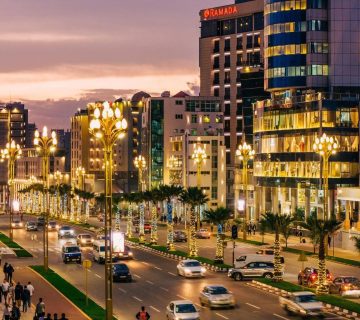The sudden death of Burundi’s former President Pierre Nkurunziza of COVID-19-cum-cardiac-arrest on June 9, 2020, has furthered the divinity-disease discussion about the role of the behavior of believers of all stripes in disease transmission. The centuries-old discussion weaved its way into the COVID-19 realm after South Korea reported that congregants at Shincheonji Church of Jesus, a South Korean Christian sect, had contributed to at least half of the 3,730 cases that that country had in early March 2020. Burundi had not reported any cases then. As the disease spread across the world, many places of worship were closed; Burundi’s remained open. While it is an open secret that religion defined Nkurunziza’s life, it still surprised many when he made it clear that his hands were off the ‘global pandemic’ because those of a supreme being were on it. He had recently said that Burundi “… [had] a special covenant with God.” On the day that Bujumbura reported Nkurunziza’s death, Burundi’s caseload was 83 cases and one death, according to John Hopkins University’s Coronavirus Resource Center. It is unclear but unlikely that this death is that of the former head of state. The long and short of it is that Burundi has now ‘seen Coronavirus.’ It is time for Burundi to take on the disease more decisively, and chart a new future for herself.
Head in the sand
The disease-divinity dichotomy that pits epidemiologists and believers against each other is doubly horrifying and fascinating. On the one hand, it horrifies because when it comes to the novel Coronavirus, existing evidence lends support for epidemiology rather than divinity. States that have made progress against the disease – including religious ones – have acknowledged the existence of the disease, taken measures to limit its spread, and relied on the expertise of medical professionals. Such measures have included bans on large gatherings, including at places of worship. Those such as Burundi and Tanzania that have erred on the side of divinity have attracted mixed reactions that have ranged from admiration to disdain. Burundi has been derided for burying her COVID-19 head in the sand.
On the other hand, this reliance fascinates for two reasons. First, it attests to Nkurunziza’s resignation to the fact that Burundi is ill-prepared to tackle COVID-19. A reality that Nkurunziza, who was at the helm of the landlocked east-central African state for about 15 years, would appreciate. He seemed to have accepted his limitations in helping Burundians to overcome the violence and underdevelopment that define their country. Limitations that COVID-19 would amplify. He reacted like many others believing Burundians would do – he offered the Coronavirus problem for supernatural intervention. Secondly, it explains Burundi’s experiment with herd immunity which is premised on the idea that if Coronavirus is beyond human control, then only the fittest will survive, and the survivors will be immune to the disease. Burundi’s strategy has been flawed because the country lacks the economic muscle and concrete plans to shield the most vulnerable individuals that other states that have adopted the herd immunity strategy have. Burundians continue to live like they did before COVID-19 emerged, paying little attention to World Health Organization guidelines. On May 20, 2020, for example, Burundi conducted a general election in which such guidelines as social distancing, not crowding, and wearing face coverings were generally overlooked. To her credit, Burundi delivered a relatively peaceful election.
A New Future?
The newly elected President, Evariste Ndayishimiye, will have his work cut out when he assumes office in August 2020. According to the United Nation’s development agency, UNDP, there are 11,863,90 Burundians who, on average, live for about 57 years. About 74 per cent of them are economically deprived on account of ill health, illiteracy, and poor living standards (multidimensional poverty). The World Bank estimates indicate that 90 per cent of employed Burundians earn less than USD 3.10 a day. COVID-19 can lower life expectancy, and weaken the economy – in the short term at least; so Evariste’s first main task will be to confront COVID-19 head-on. This will entail publicly acknowledging the existence of Coronavirus in Burundi. It will also involve seeking the help – in cash and kind – of the international community to facilitate mass education, testing, and case management. He will need Burundi’s support to do these and institute anti-COVID-10 measures which tend to be restrictive and require behavior change. The other key tasks will be to improve Burundi’s development profile, and human rights record.
He may have the ruling party’s support, but he will lack the kind of governance advice that a predecessor would provide an incoming president. Even then, there is no guarantee that this support will be transferable, or that the opposition, who have contested his election, will bury the hatched for the good of Burundi. Disunity is not an option; Burundi cannot afford it. Evariste must find a way of maintaining peace and stability – fragile as these may be – in the conflict-ridden country, including engaging the Burundi Diaspora, and Burundian refugees. His failure to unite against Burundi’s real enemies, including the ‘global pandemic’ and underdevelopment, will exacerbate the current condition, and keep Burundi in the company of the world’s most deprived states. It will also expose the new government to discord that could cause chaos.
Despite Burundi’s misgivings, it is time for the African Union and the East African Community to demonstrate their support for Evariste’s government by publicly acknowledging his presidency, encouraging internal reconciliation with the opposition forces, repairing damaged bilateral and/or multilateral relations, offering development grants, and appointing advisors and envoys who will help Burundi stabilize and develop in the post-Nkurunziza era.
Roselyne Omondi is the Associate Director, Research, at the HORN Institute



